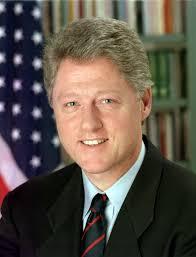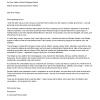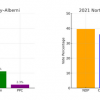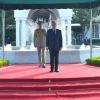Dear Mr. President:
We write today to respectfully request that you thoroughly review and reconsider the administration’s policies and diplomatic practices involved in the Kyoto treaty.
We share your commitment to asserting American leadership in the world, and especially in searching for cooperative ways to address global environmental problems. However, we are deeply concerned over what has occurred to date in the negotiations of the global warming treaty in Kyoto.
For previous administrations, we have had the privilege of assisting the US Government in the negotiation of important international agreements. The lessons we have learned from these negotiations, in arms control, trade, and other areas, we believe have been ignored or forgotten in the Kyoto process.
Specifically, we are concerned about the precedent set at Kyoto by exempting a number of growing economies like China, Mexico and Indonesia from the restrictions of the treaty. By staking out one position, and then preemptively conceding these very points, the United States sends a signal to the rest of the world that will restrict our future negotiating strategies.
If global warming is in fact a problem, these concessions make matters worse by sanctioning continued burning of rain forests and by forcing relocation of energy-intensive industries from the United States, which at least has among the strictest air quality rules in the world, to emerging economies, which have virtually no air quality protections at all.
By delaying consideration of the verification protocols of the treaty, the position of the administration ignores the hard-learned lesson from arm control and other negotiations- trust but verify.
Furthermore, by not establishing a verification protocol, the United States will now have to address the growing power of international bureaucracies intent on expanding their role. Even if the United States never ratifies the Kyoto treaty, the diplomatic and in some case legal powers of these organizations will limit the legitimate exercise of US sovereign decision making In the world. This was the pattern, of course, with the non-ratified SALT agreement.
The Kyoto treaty also threatens to limit the exercise of American military power exempting only US military exercises that are multinational and humanitarian, unilateral military actions – as in Grenada, Panama and Libya – will become politically and diplomatically more difficult.
If the Kyoto treaty is nothing more than a “feel good” public relations ploy (as some analysts have suggested), American foreign policy has been relegated to a level of self-delusion unmatched since the Kellogg-Briand Pact of 1928. The history of the past century has shown that attempting to end conflicts or reverse deep-seated international disagreements through well intentioned and romantic treaties is a delusional and even dangerous exercise. We must bring the same level of clear-headed diplomacy, displayed by earlier administrations in the last round of arms control negotiations with the former Soviet Union to the important issue of the environment.
We therefore urge you to reconsider the US position, ensuring that the treaty is science-based, inclusive, and verifiable before submitting it for ratification.
Sincerely yours,
Richard Burt
Former Ambassador to Germany and Former Chief Arms Control Negotiator
Jeane Kirkpatrick
Former Ambassador to the United Nations
Richard Cheney
Former Secretary of Defense
Donald Rice
Former Secretary of the Air Force
Caspar Weinberger
Former Secretary of Defense
Alexander Haig
Former Secretary of State
Frank Carlucci
Former Secretary of Defense
Lawrence Eagleberger
Former Secretary of State
William Brock
Former Secretary of Labor and Former U.S. Trade Representative
Peter Rodman
Director, National Security Programs, Nixon Center for Peace and Freedom
Malcolm Wallop
Former United States Senator
Charles Price II
Former Ambassador to the Kingdom of Belgium and the Court of St. James
Roger W. Robinson, Jr.
Former Senior Director of International Economic Affairs at the National Security Council
















